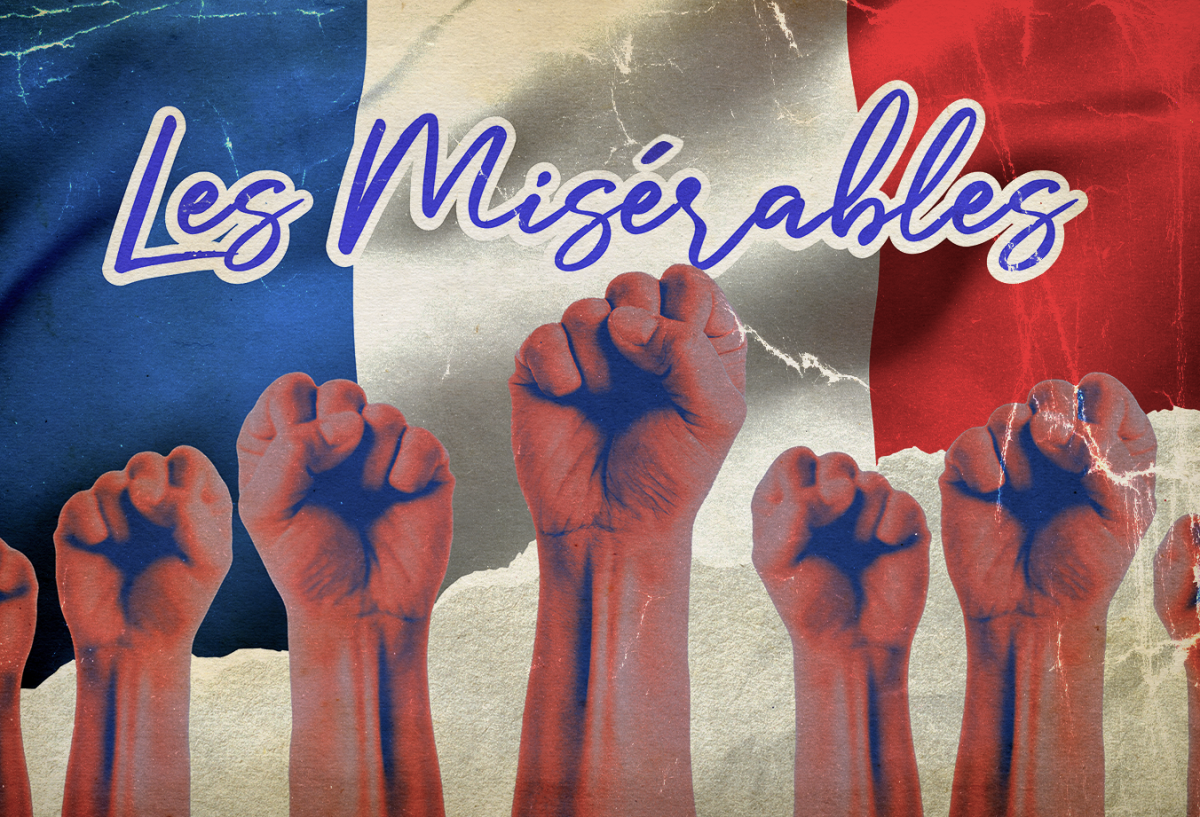“Les Misérables,” or “The Miserables” in English, recounts the famous tale of revolution, representing ideas of inequity in the judicial systems and an uprising against unfair government, topics equally as prominent in 2024 America as in 18th-century France.
The classic novel recalls the tale of Jean Valjean throughout his journey as he perseveres through France’s cruel prison system.
Valjean is initially sent to prison for stealing a loaf of bread during France’s famine to feed his nearly dead niece, when he tried to run from the police, he was given another 14 years in prison.
The novel shows the abuse Valjean succumbed to during his prison days, mainly physical labor, including lifting a wooden ship out of the ocean along with his fellow prisoners.
The prison system throughout France at this time was highly discriminated against ex-prisoners, as once Valjean was released, he had to brand his prison number “24601” upon his chest to alert citizens of his past crimes.
Due to the harm and discrimination he faces after leaving prison, Valjean meets a saint-like priest who saves him.
This interaction causes Valjean to decide to violate his parole, turn his life around and become an honest man.
As this novel takes place across several decades, we see Valjean’s journey from criminal to upstanding citizen.
The second half of the novel represents not only Valjean but adds the perspectives of French students Marius and Enjolras.
The students attempt to protest their cruel government for revoking their right to education.
The series of protests eventually turn violent, mirroring the events of modern-day America, such as protests over Black Lives Matter, abortion and the Israel-Gaza attack.
The protests within the novel speak to the overall theme of revolution: revolting from discrimination, scrutiny and lack of education.
“If I speak, I am condemned; if I stay silent, I am damned,” Valjean said in the novel.
This quote encompasses the entire story and theme: while speaking up against unjust systems may land you in prison or to your death, staying silent is worse, as it leads to a continuous abuse of power.
Victor Hugo wrote the novel in 1862 in France and translated it into English later that same year.
Due to its popularity, intense meaning and constantly relevant topics, “Les Misérables” was transformed into a stage musical and toured the world from 1987 to present.

































































































































































